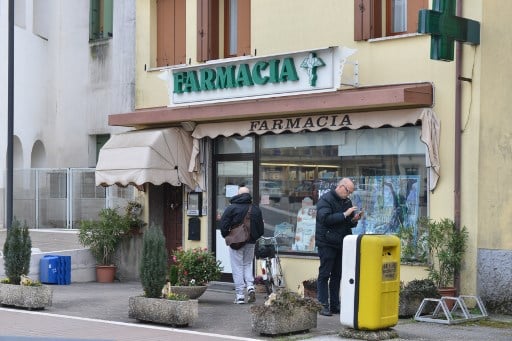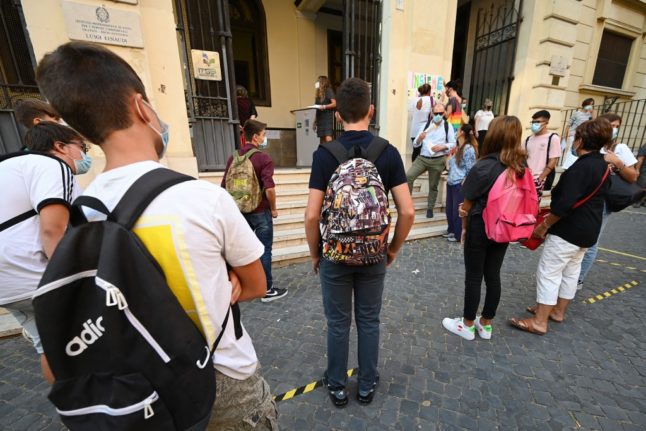We have chosen to make this article completely free for everyone. Please support our coverage by considering joining as a member. Scroll to the bottom for more information.
What precautions are advised?
The Italian government has published guidelines aimed at reducing the risk of contracting the virus.
The advice is much the same as that issued during flu season and involves taking a few basic precautions.
You should take the same precautions in Italy that you would anywhere else:
- Wash hands thoroughly and often with soap and water, especially after coughing and sneezing or before eating.
- Avoid touching your eyes, nose or mouth, especially with unwashed hands.
- Cover your nose and mouth when coughing or sneezing.
- Avoid close contact with people who have symptoms of respiratory illness.
- Wear a mask if you suspect you are ill, or if you are assisting someone else who is ill.
- Clean off surfaces with alcohol- or chlorine-based disinfectants.
People are also advised not to take any antibiotics or antiviral medication unless they have been prescribed by a doctor.
And you don't need to worry about handling anything made or shipped from China, nor about catching coronavirus from (or giving it to) a pet.
You can find the latest information and health advice regarding the coronavirus outbreak in Italy from the Italian Health Ministry, your country's embassy, or the World Health Organization.
Do I need to wear a mask?
The WHO and the Italian government have stated that the masks are only useful if you're already ill, or if you're a health professional assisting people who are ill.

Shoppers wearing masks in northern Italy. Photo: Miguel Medina/AFP
“Hygiene measures (washing your hands) and avoiding close contact, just as for the flu, is enough to avoid spreading the pathogens,” said the president of the Federation of Italian Pharmacists, Andrea Mandelli.
Italian Health Ministry advice on #coronavirus:
– wash hands often
– avoid contact with people with respiratory problems
– don't touch eyes/nose/mouth
– cover mouth+nose when coughing
– don't take any medication unless prescribed
– products made in China are NOT dangerous https://t.co/4yvfaHrQuQ— The Local Italy (@TheLocalItaly) February 24, 2020
Other experts, however, say wearing a mask as a precaution – i.e., even if you don't have symptoms – could help reduce the risk that infected people will spread the virus to others before they realise they're ill.
Read what other countries advise about face masks here.
And as of early April, some regions of Italy have made face masks compulsory in supermarkets or even just on the street.
READ ALSO: Where should I wear a face mask in Italy?
What should I do if I think I have symptoms of coronavirus?
If you develop a fever, cough or have difficulty breathing either in Italy or within 14 days of travelling here, you need to seek medical advice immediately but without endangering others.

Emergency rooms in affected areas have been closed. Photo: AFP
Do not go straight to a hospital or doctor's surgery. In Italy, call the government's coronavirus hotline on 1500 for emergency advice in English, Italian or Chinese.
READ ALSO: Coronavirus in Italy: The phone numbers and websites you need to know about
If you have any questions or concerns while in Italy, you can call one of the regional information lines set up specifically for that purpose.
Istituzioni nazionali e locali lavorano senza sosta per fronteggiare l'emergenza #coronavirus. La collaborazione dei cittadini è fondamentale per rendere efficaci le misure adottate. Chiama i numeri verdi regionali solo in caso di necessità⤵️#covid19italia #coronavirusitalia pic.twitter.com/na18P2JFnR
— Ministero Salute (@MinisteroSalute) February 25, 2020
If you're already back home, call your doctor and inform them that you recently travelled to Italy.
Until you've been tested for the virus, avoid further travel or contact with others.
According to the WHO, around 80 percent of people who contract the new coronavirus recover without needing special treatment.
Around one out of every six people who gets COVID-19 becomes seriously ill and develops difficulty breathing.
Only around two percent of cases are fatal. Older people and those with underlying medical problems like high blood pressure, heart problems or diabetes, are more likely to develop serious illness.
Find all The Local's coverage of the coronavirus outbreak in Italy here.
*****



 Please whitelist us to continue reading.
Please whitelist us to continue reading.
Member comments